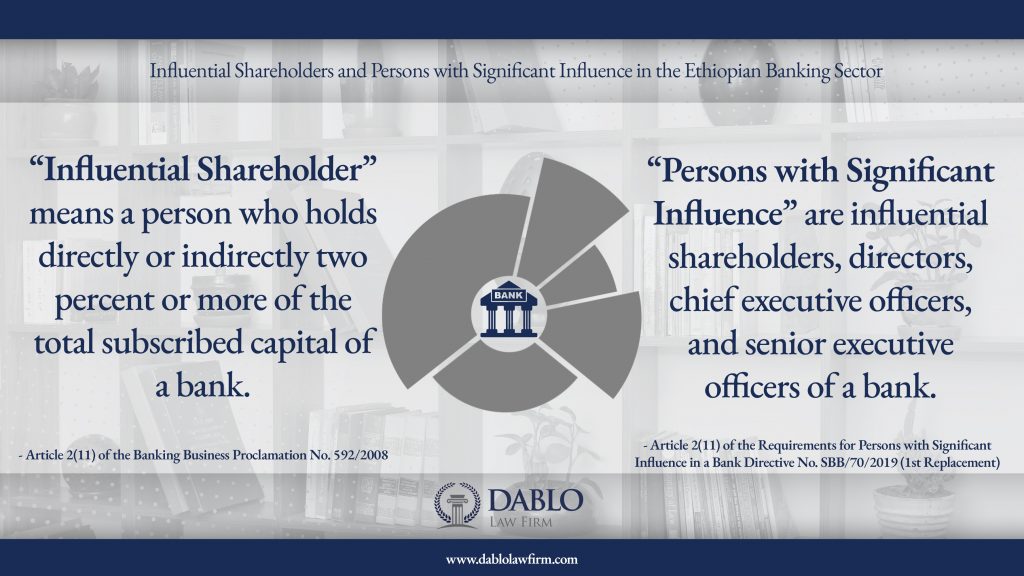Influential shareholders in the Ethiopian banking sector are individuals, companies, or institutions that hold directly or indirectly two percent or more of the total subscribed capital of a bank. They play a key role in the growth and development of the banking sector by providing capital, expertise, and strategic guidance.
The National Bank of Ethiopia (NBE) regulates influential shareholders to ensure sound practices, stability, and public confidence in the financial system. The NBE requires influential shareholders to meet certain fit and proper criteria, disclose their ownership structure, and submit regular reports.
The presence of influential shareholders in the Ethiopian banking sector has both positive and negative implications. On the one hand, they can provide access to capital and resources, networking opportunities, and valuable knowledge. On the other hand, they can also lead to concentration of power, conflict of interest, and a lack of accountability.
The NBE has enforcement mechanisms and penalties in place to deter non-compliance with the regulations governing influential shareholders. It is essential for all influential shareholders to adhere to the requirements outlined in the Directive to ensure the overall stability and integrity of the banking sector in Ethiopia.
The requirements set by NBE include:
- Minimum capital requirement: Influential shareholders must maintain a minimum capital level of 2% or more of the total subscribed capital of a bank.
- Fit and proper criteria: Influential shareholders must meet the fit and proper criteria set by NBE, which include having a good reputation, relevant experience, age, and financial soundness.
- Disclosure requirements: Influential shareholders must disclose their ownership structure, including any beneficial owners, to the NBE.
- Reporting requirements: Influential shareholders must submit regular reports to the NBE about their activities in the bank sector.
- Restrictions on activities: Influential shareholders are restricted from engaging in activities that could pose a conflict of interest or harm the bank’s reputation. This includes insider trading, market manipulation, and other forms of financial misconduct.







